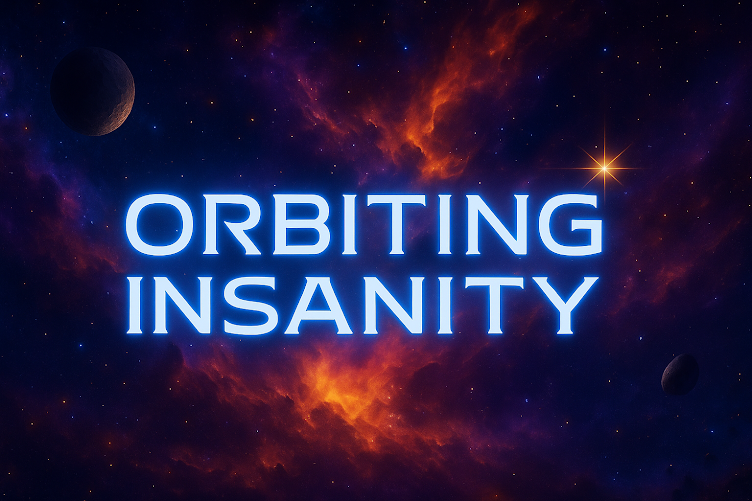Sometimes, I spend hours trying to pick a good name for a place in my stories. This sounds silly, but the names we choose for our fiction matter because they matter in real life.
Location-Naming Practices
Qualities
Naming a place after a quality is useful because it makes identifying the right place easy. If you're trying to get to a place called Huge Purple Desert, you'll probably figure out you're there when you see a huge purple desert.
Places named after their qualities:
- The Yellowstone River
- Named after the yellow sandstone bluffs that line the riverbanks
- The Great Plains
- This should be pretty obvious how it got its name …
- The Rocky Mountains
- This one should also be easy
- The Himalayas
- The word "Himalaya" comes from Sanskrit, meaning "abode of snow"
- The Sahara
- The word "Sahara" comes from the Arabic word "çahra," which means "desert"
- The Cuyahoga River
- The word "Cuyahoga" is an Anglicized spelling of the word "cayagaga," a Mohawk or Iroquois word that means "crooked river"
People
Consider all the places in the United States named after Martin Luther King Jr., Robert E. Lee, or previous presidents. When we name places after people, it shows what we value, it shows who our heroes are, who we deem worthy of honor.
Places named after people:
- The city of Alexandria in Egypt
- Named after Alexander the Great
- Washington State in the United States
- Named after George Washington
- The city of Rome in Italy
- Named after the mythical founder of Rome, Romulus
- The nation of Israel
- Named after the biblical Israel (also known as Jacob)
Concepts
When we name places after concepts, it can tell people about the intangible things we value.
Places named after concepts:
- The city of Memphis in Tennessee
- Named after the Egyptian city of Memphis, which comes from the ancient Egyptian word "men-nefer," meaning "enduring beauty"
- Nihon – the nation of Japan
- Nihon is the Japanese word for Japan, and it means "where the sun originates." It is often translated to "Land of the Rising Sun" in English
- Zhōngguó – the nation of China
- Zhōngguó is the Chinese word for China, which literally means "middle kingdom" or "middle state," which refers to the ancient Chinese worldview that China was the center of the world
- The city of Philadelphia
- The founder of the city, William Penn, combined two ancient Greek words, "philos" and "adelphos" to mean "brotherly love"
Naming Places in Stories
The world I’m building is very different from ours. It’s an alien planet called Jakad, and everything about it is alien. The trees are not trees, only tree-like. The animals are not animals, just animal-like. There are humans on this planet, humans from fifty thousand years ago, taken from Earth to become slaves, then lost and forgotten on Jakad.
Humanity spreads across the land, and even though the world is completely alien, they manage to make it feel somewhat human. And part of that human-ness comes from the way they name things in the world around them.
So.
Here’s how I’ve gone about it, and here’s why it often takes me hours to settle on the right name for a place.
I have my map that I drew.
 |
| © Jessica McKendry |
I started naming the most obvious places. The subcontinents, the rivers, the lakes, the mountains. Since I have created a unique language for each region of this continent, I named everything in the language tied to that location.
Take the mountain range near the bottom of the map, just beneath the big lake. The people who live in the mountains believe that these mountains are holy and that they are at the very top of the world. I wanted the name of this mountain range to meet three requirements:
- The name should reflect the beliefs of the people living there
- The name should sound like it belongs to the language of the people living there
- The name should sound good to me
I'm very picky about words. There are some words I absolutely hate just because of how they sound, like moist or honkytonk.
Those words give me the ick.
I ended up choosing the name Phoraïth, which, in my made-up language, Pharais, comes from the roots pho- (meaning high, elevated, or supreme) and -raïth (meaning crown, crest, or pinnacle). Together, the words mean The High Crown, which perfectly fits the beliefs of the people living there. I also like the sound of the name, and it fits the language.
Near the top right of the continent, there is a large, rounded peninsula. This is a wetland, and the people who live there call it Molakai, which means Land of Reeds in the language of that region.
Sometimes, I’m not quite sure what I want a place to be like, so I need to spend some time thinking about the environment and what makes a certain place special. I have developed some of the world's history, so there will definitely be places named after historical figures important to each region, but I haven’t gotten that far yet.
That’s next week’s problem!
Writers, how do you pick names for places in your stories? Readers, do you like it when the names of places in the books you read are well thought out? Or does it not matter?

Ah, the fun of worldbuilding.
ReplyDeleteThis is a really interesting post, Jess. Thanks for giving a comprehensive look into how you choose names for placers in your stories. Your previous post about Jasper touched my heart deeply. All the best to you and Jasper. I'm visiting for IWSG Day. Happy creating in October!
ReplyDeleteWow, that is way more thought than what I put into creating words for my stories!! Awesome!
ReplyDelete